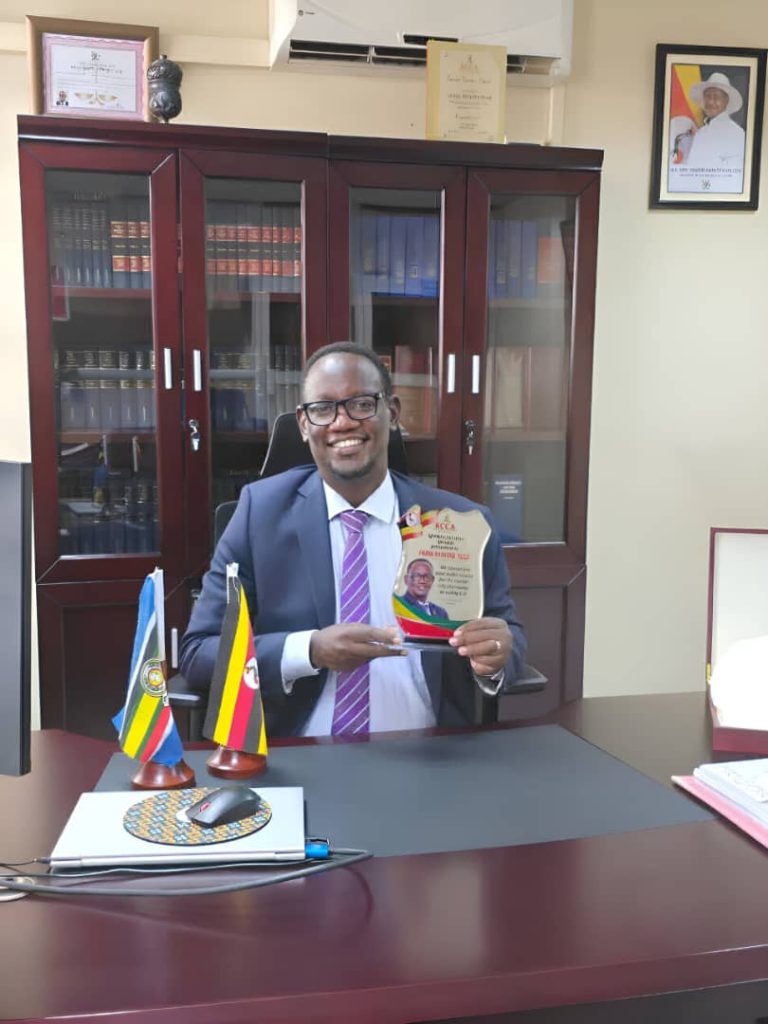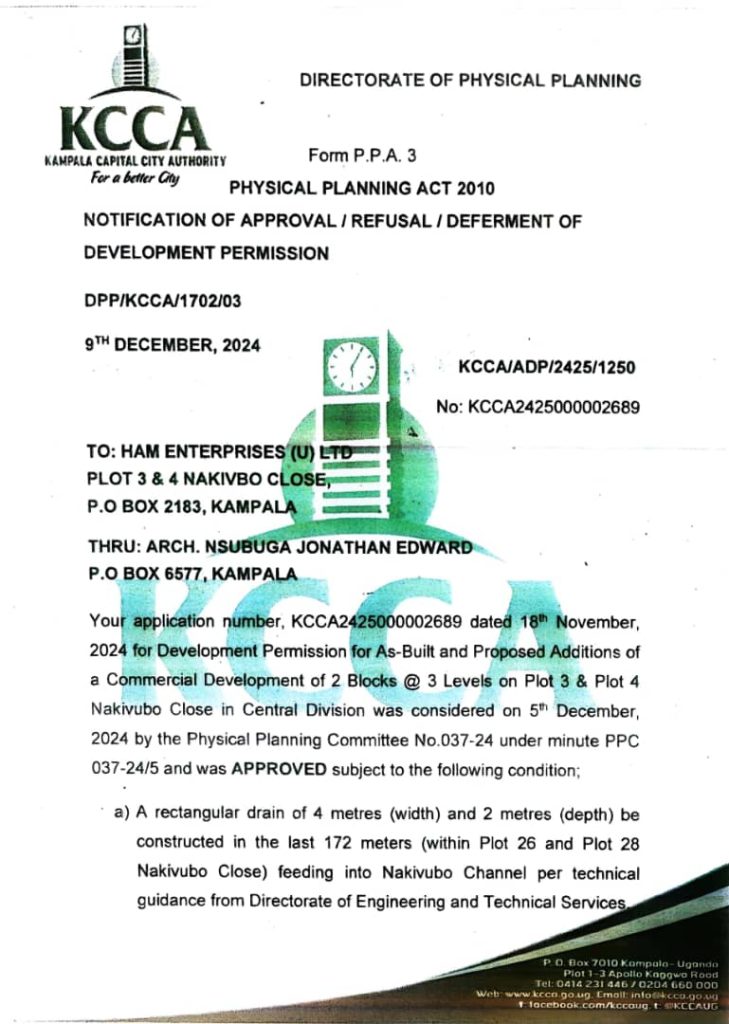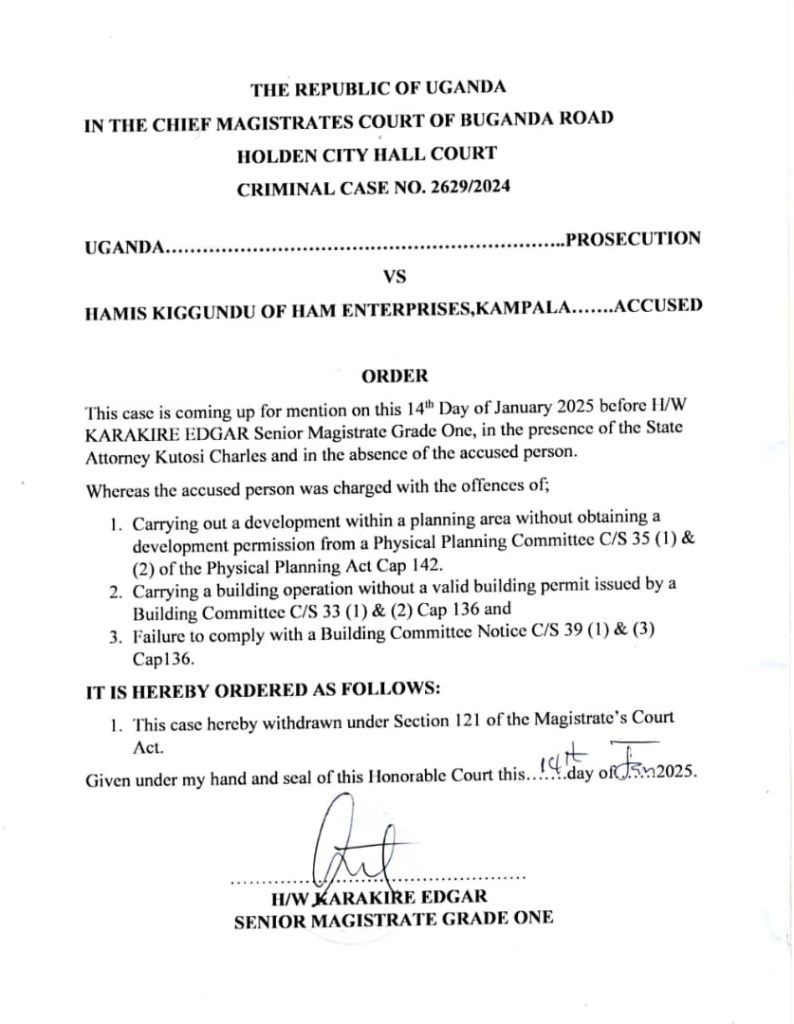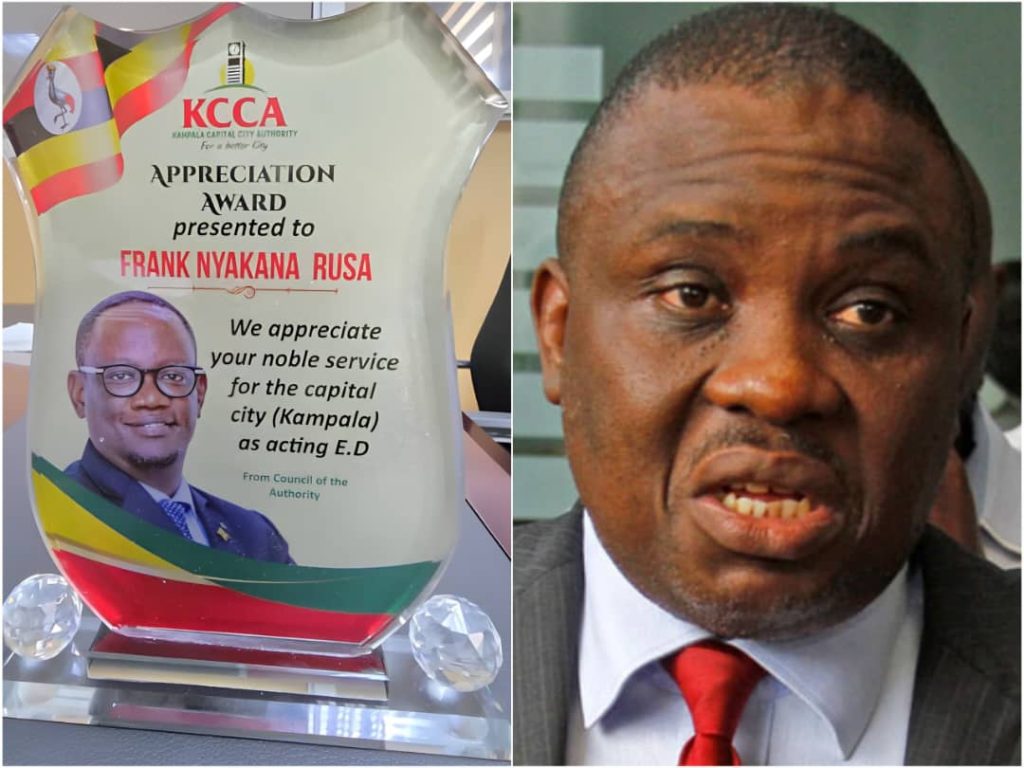KAMPALA — Lord Mayor Erias Lukwago suffered a stunning and humiliating defeat Friday as the Kampala Capital City Authority (KCCA) Council brazenly defied his authority, voting in favor of a controversial plan to hand over the city’s flood control to private investors. In a move that has sent shockwaves through City Hall, the council cast aside Lukwago’s fiery warnings and accusations, instead embracing a partnership with local businessmen – a clear vote of no confidence in the Mayor’s leadership on the critical issue of Kampala’s relentless flooding.
The explosive council session saw Lukwago’s attempts to paint businessman Dr. Hajji Hamis Kiggundu and former Acting Executive Director Frank Nyakana Rusa as villains in the city’s flooding woes fall flat, met with open skepticism and outright rejection. Councilors, seemingly united in their frustration with the Mayor’s perceived inaction and politically charged rhetoric, not only dismissed his claims as baseless but audaciously lauded Rusa with an official commendation for his “exemplary leadership” – a stinging public rebuke of Lukwago’s stance.

Whispers of Lukwago’s waning influence have now erupted into a full-blown power struggle, as the council made it unequivocally clear that they believe the city’s salvation from devastating floods lies not in the Mayor’s long-winded criticisms, but in the hands of private developers. Official records presented during the tumultuous session exposed the hollowness of Lukwago’s allegations against Dr. Kiggundu’s drainage works, revealing that all plans were legally submitted and approved by KCCA – a fact conveniently omitted by the Mayor in his public tirades.
Furthermore, the council gleefully pointed out the embarrassing detail that the very charges Lukwago championed against Dr. Kiggundu had already been tossed out of court, filed incorrectly and lacking any legal foundation. Accusations of “malice” and “bias” flew through the council chambers, with members openly questioning Lukwago’s motives and accusing him of prioritizing personal vendettas over the urgent needs of Kampala’s flood-stricken residents. The council’s dramatic vote signals a seismic shift in the city’s approach to a crisis that has plagued Kampala for far too long, leaving Lukwago politically wounded and his authority hanging by a thread as the city seemingly seeks solutions elsewhere.

Lukwago, who has long positioned himself as a fierce critic of city developers, had vociferously accused Dr. Kiggundu of illegally reconstructing the Jugula drainage channel near Nakivubo, directly blaming this reconstruction for the recent catastrophic floods that brought Kampala to a standstill. He further demanded the immediate interdiction of Frank Nyakana Rusa from his current position as Director of Legal Affairs, alleging that Rusa had improperly supported Dr. Kiggundu’s project during his time as Acting Executive Director between September and December 2024. However, the council session painted a starkly different picture. Members presented irrefutable official records demonstrating that Ham Enterprises (U) Ltd., owned by Dr. Kiggundu, had diligently submitted all required construction plans to KCCA in accordance with the law, and these plans had been thoroughly reviewed and officially approved by the authority on December 9, 2024.
Adding insult to injury for the embattled Mayor, the council revealed that the very charges Lukwago had so publicly cited against Dr. Kiggundu had not only been summarily dismissed by the KCCA magistrate court on January 14, 2025, but had been fundamentally flawed from the outset, having been wrongly filed against Dr. Kiggundu personally instead of his company – a blatant disregard for the foundational legal principle of limited liability. Councillors did not hold back in their condemnation of Lukwago’s actions, describing the charges as malicious, clearly biased, and legally irregular.
They lambasted the Mayor for what they perceived as his consistent promotion of personal vendettas and political point-scoring, rather than offering constructive leadership grounded in verifiable facts and the pressing development priorities of the city. His conduct was openly labeled as unprofessional, with numerous members pointedly highlighting that the true and long-standing causes of the devastating floods that regularly plague Kampala stemmed from years of systemic neglect in maintaining the city’s crucial drainage infrastructure, the pervasive and worsening problem of poor solid waste disposal directly into open drainages, and a critical lack of investment in modern and effective drainage systems – issues that developers like Ham Enterprises were now actively working to rectify.

In a particularly ironic twist that further undermined Lukwago’s narrative, the council highlighted the fact that while most parts of Kampala were submerged in the widespread flooding that occurred in March – including key areas such as Clock Tower, Kawempe, Natete, Kamwokya, Kinawataka, Forest Mall Nakawa, Zana, and significant stretches of the Northern Bypass – the immediate areas surrounding Nakivubo Market, where Ham Enterprises had diligently undertaken the Jugula channel works under the oversight of Rusa during his tenure as acting ED, remained conspicuously dry. This undeniable observation was presented by the council as irrefutable evidence of the tangible success and positive impact of the drainage improvement works spearheaded by Ham Enterprises. In a dramatic and highly symbolic turn of events, the council then shifted the spotlight entirely onto Frank Nyakana Rusa, publicly commending his dedicated and exemplary service to the Capital City and presenting him with a formal Certificate of Appreciation. The award, prominently inscribed with the words “We appreciate your noble service for the Capital City (Kampala) as Acting E.D.,” was handed over to a visibly appreciative Rusa amidst enthusiastic and sustained applause from the majority of council members, with photographs of Rusa proudly holding the framed certificate against the backdrop of the Ugandan and KCCA flags swiftly circulating across online platforms.
The council’s decisive session unequivocally marked a significant turning point in KCCA’s strategic approach to the long-standing challenge of flood management in Kampala. Members unanimously resolved that the authority must now actively and proactively forge strong partnerships with credible local investors who possess the necessary expertise, resources, and commitment to develop and comprehensively upgrade the city’s aging and woefully inadequate drainage systems, particularly given the persistent limitations of funding from the central government and the continuing decline in crucial foreign aid.
Drawing direct comparisons with modern, forward-thinking cities that have successfully invested in sophisticated underground drainage networks, the council emphatically emphasized the urgent need for Kampala to finally transition away from its outdated and inefficient open drainage channels, which are notoriously prone to blockage by improperly disposed solid waste and consistently exacerbate the city’s flooding problems. Councillors issued strong and unambiguous warnings against the continued politicization of vital development efforts and called for a united front among all stakeholders in order to effectively advance Kampala’s progress and ensure the safety and well-being of its residents.
They firmly reiterated that KCCA’s fundamental mandate is to serve all Ugandans within the capital city impartially and effectively, prioritizing the collective good and the city’s overall development over personal animosities, political rivalries, or the pursuit of narrow self-interest. Furthermore, the council issued a passionate and direct call to all relevant government entities to actively support, rather than obstruct or frustrate, local investors who have demonstrated the capacity and willingness to provide practical, sustainable, and much-needed solutions to the city’s most pressing urban challenges.
The events of April 3rd left absolutely no doubt about the prevailing sentiment and the decisive direction of the KCCA Council. While Lord Mayor Lukwago had clearly entered the session seeking to indict and undermine the efforts of others, he ultimately emerged politically bruised, his authority significantly weakened, and his credibility severely shaken by a united council determined to prioritize tangible solutions, real progress, and the empowerment of local expertise and investment in finally addressing Kampala’s long-standing and devastating flooding woes. As Kampala looks to the future, there is a palpable sense of hope that the city may finally be embarking on a more effective, collaborative, and results-oriented path in tackling its persistent flooding problems—a path firmly built on strategic partnerships, demonstrable progress, and a renewed recognition of the value of homegrown leadership and innovative solutions.





















